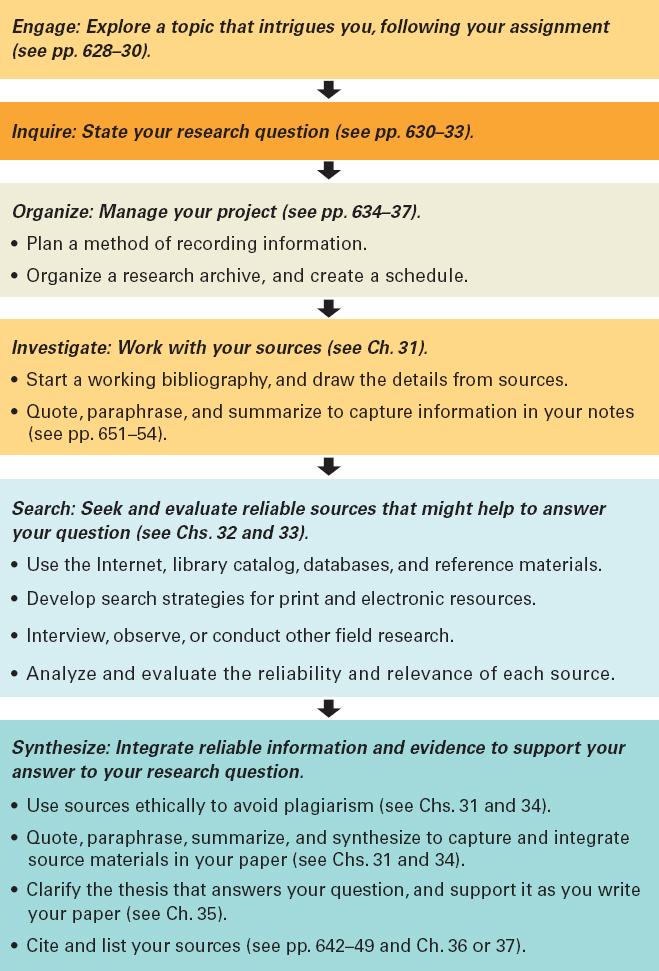Planning Your Research Project
Conducting research is a lifelong skill, valuable in college, at work,and in your personal life. Yet this skill is increasingly complex.You must actively engage, inquire, search, access, evaluate, integrate, and synthesize information from moving, not fixed, targets. Electronic databases are fluid, sources may change, and details may shift over time.
As a result, a research project requires information literacy — the capacity to handle information — as well as critical reading and thinking as you join the academic exchange. The graphic on page 627 identifies major stages in a typical research process, moving from the exploration of a topic to the evaluation, analysis, and synthesis that eventually evolve into a final paper with well-integrated sources.
Why Planning a Research Project Matters
In a College Course
- You plan ahead to finish — on time and on target — the research project assigned in your writing class.
- You apply your planning experience to your capstone research project for your major.
In the Workplace
- You organize your work group to investigate a potential client base, using available demographic data.
In Your Community
- You arrange the needs assessment necessary to justify a new recreation center.
 When have you planned a research project? In what situations do you expect to do so again?
When have you planned a research project? In what situations do you expect to do so again?
THE RESEARCH PROCESS
